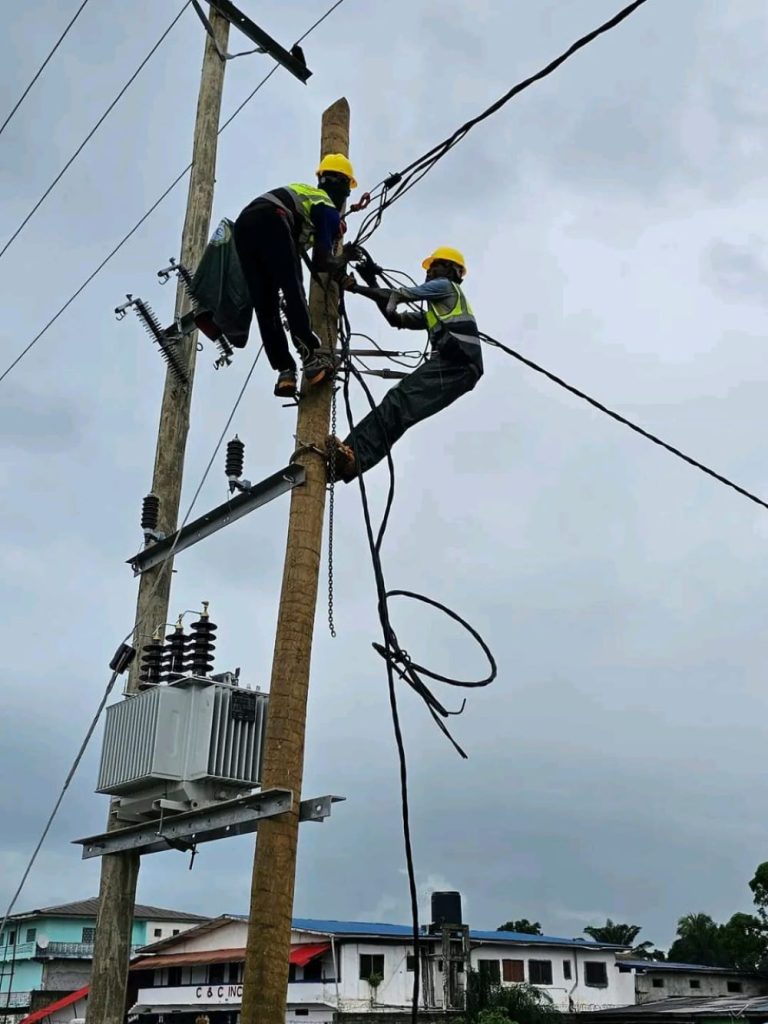Liberia’s inclusion in the “Mission 300” initiative marks a significant stride towards achieving universal electricity access and fostering sustainable development. This joint program by the World Bank and the African Development Bank aims to electrify the lives of over 300 million Africans by 2030, focusing on expanding access to affordable, reliable, and sustainable electricity. The initiative’s core strategy involves substantial investments in various aspects of the energy sector, including generation, transmission, distribution, regional interconnection, and crucial sector reforms. These investments are designed to create a robust and efficient energy infrastructure capable of meeting the escalating demand for electricity across the African continent. “Mission 300” prioritizes diversified and cleaner energy sources, paving the way for a transition towards a more sustainable energy future for Africa. This shift will not only address the pressing energy needs of the continent but also contribute to mitigating climate change and promoting environmental sustainability.
The program requires participating countries to develop comprehensive “energy compacts” – detailed blueprints outlining their national strategies for expanding and enhancing electricity access. These compacts serve as roadmaps for each nation’s journey towards achieving universal electrification, taking into account their specific contexts and challenges. For Liberia, the “energy compact” represents a critical commitment to elevate electricity access from the current 33% to an ambitious target of 80-95% by 2030. This significant increase in electricity access will be a catalyst for economic growth, job creation, and improved living standards for millions of Liberians. The compact will likely detail specific projects, policies, and reforms aimed at achieving this transformative goal, encompassing both grid expansion and off-grid solutions. The focus on renewable energy sources like solar and hydropower signifies Liberia’s commitment to sustainable development and aligns with the global push towards cleaner energy alternatives.
Liberia joins a cohort of 15 African nations selected for the “Mission 300” program, including Sierra Leone, Togo, and Chad in Western and Central Africa. The inclusion of these nations underscores the regional focus of the initiative and the recognition of the shared challenges and opportunities for collaboration in achieving universal electricity access. The joint efforts of these countries, supported by the World Bank and African Development Bank, will contribute to strengthening regional energy infrastructure and promoting cross-border electricity trade, enhancing energy security and resilience across the region. The upcoming summit in Tanzania will serve as a platform for these nations to present their energy compacts and solidify their commitment to the ambitious goals of the initiative.
The summit, scheduled for February 2025 in Tanzania, will bring together leaders from the 15 participating countries, along with representatives from the World Bank, African Development Bank, and other key stakeholders. This high-level gathering will provide a forum for discussing strategies, sharing best practices, and mobilizing resources to accelerate progress towards universal electricity access. President Joseph Boakai of Liberia, accompanied by a delegation comprising officials from the Ministry of Mines and Energy, Liberia Electricity Corporation (LEC), Rural Electrification Agency, and private sector representatives, will present Liberia’s energy compact at the summit. This demonstrates Liberia’s commitment to the initiative and its determination to leverage the resources and expertise available through the program to achieve its ambitious electrification goals.
Liberia’s commitment to expanding its energy infrastructure is further evidenced by recent developments, including the groundbreaking ceremony for a 90-megawatt solar plant and the exploration of potential investments in projects like the St. Paul River hydropower plant. These initiatives reflect the government’s recognition of the critical role of energy in driving economic development and improving the lives of its citizens. The visit by the World Bank Vice President for West and Central Africa, Ousman Diagana, and his delegation highlights the strong partnership between Liberia and the World Bank in the pursuit of sustainable development goals. The delegation’s visit to the solar plant site underscores the World Bank’s support for Liberia’s efforts to expand its renewable energy capacity and diversify its energy mix.
Minister Ngafuan’s acknowledgment of potential challenges on the path to achieving these ambitious goals reflects a realistic understanding of the complexities involved in such a large-scale undertaking. However, his expression of confidence in achieving the government’s energy targets, underpinned by the support of programs like “Mission 300,” demonstrates the government’s resolve and commitment to transforming Liberia’s energy landscape. The focus on increased generation, transmission, and distribution capacity, coupled with necessary sector reforms, signals a comprehensive approach to addressing the country’s energy needs. The involvement of the private sector highlights the importance of public-private partnerships in driving investment and innovation in the energy sector. By leveraging the strengths of both public and private entities, Liberia can create a more dynamic and sustainable energy ecosystem.


